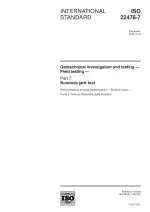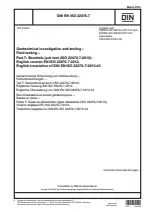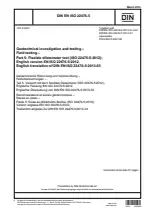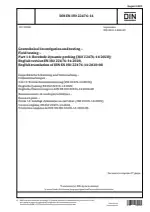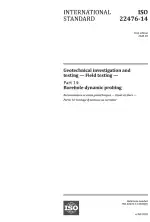Geotechnical Investigation and Testing - Field Testing - Part 7: Borehole Jack Test
Also Known As:
ISO 22476-7:2012 is a standard that outlines the requirements, procedures, and reporting for conducting borehole jack tests in geotechnical investigations. The purpose of this test is to determine the stress-displacement relationship of the ground for a specific design stress range.
The standard specifies the equipment needed for the test, including diametral cylindrical steel loading plates. These plates are placed in the ground and pressure is applied to open them. The pressure applied and the corresponding opening of the probe are measured and recorded. This data is used to analyze the behavior of the ground under different stress levels.
ISO 22476-7:2012 is applicable for test depths of less than 100 meters and can be performed both on land and offshore. It is important to conduct the test in ground stiff enough so as not to be affected by the drilling process.
| Edition | 1 |
| ICS Codes | 93.020 - Earthworks. Excavations. Foundation construction. Underground works |
| Language(s) | English |
| File Size | 276.5 KB |

